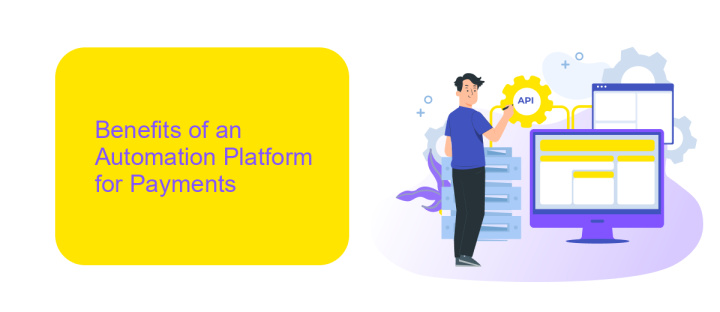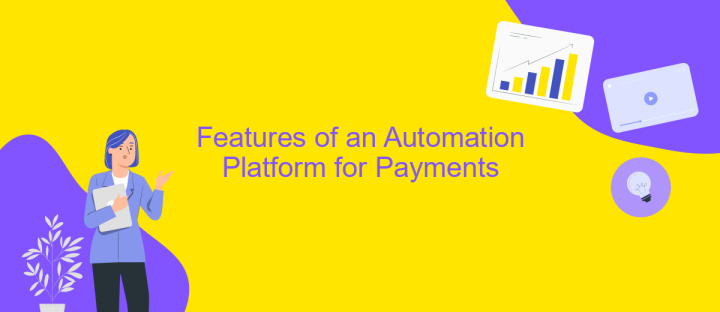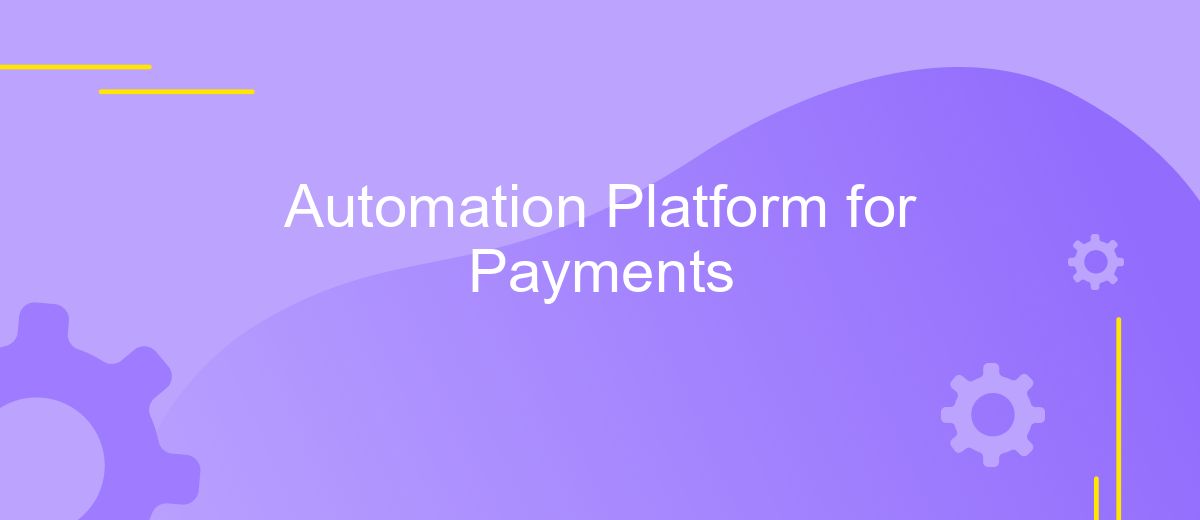Automation Platform for Payments
In today's fast-paced digital economy, businesses are increasingly turning to automation platforms for payments to streamline their financial operations. These platforms offer a seamless, efficient, and secure way to handle transactions, reducing manual errors and saving valuable time. By integrating cutting-edge technology, companies can enhance their payment processes, improve cash flow management, and stay competitive in an ever-evolving market landscape.
Introduction
In today's rapidly evolving financial landscape, the demand for seamless and efficient payment solutions has never been greater. Businesses and consumers alike seek platforms that can automate and streamline payment processes, reducing manual intervention and minimizing errors. An Automation Platform for Payments offers a comprehensive solution, integrating various payment methods and technologies to enhance transaction efficiency and security. This platform is designed to meet the needs of diverse industries, providing scalable and customizable solutions that adapt to changing market demands.
- Streamlined transaction processing to reduce manual errors.
- Integration with multiple payment gateways for enhanced flexibility.
- Real-time analytics and reporting for better financial insights.
- Scalable architecture to accommodate business growth.
- Enhanced security features to protect sensitive data.
By leveraging an Automation Platform for Payments, businesses can significantly improve their operational efficiency and customer satisfaction. The platform not only facilitates faster transactions but also provides valuable insights through data analytics, enabling informed decision-making. As digital payments continue to grow, adopting such technology becomes essential for staying competitive and meeting customer expectations in a fast-paced digital economy.
Benefits of an Automation Platform for Payments

An automation platform for payments offers numerous benefits, streamlining financial operations and enhancing efficiency. By automating routine payment processes, businesses can significantly reduce the risk of errors and fraud. This leads to improved accuracy and reliability in financial transactions, ensuring that payments are processed promptly and correctly. Additionally, automation enables real-time tracking and reporting, providing businesses with up-to-date insights into their financial status and cash flow, which is crucial for strategic decision-making.
Moreover, integrating an automation platform with existing systems can be seamless with services like ApiX-Drive. This tool simplifies the integration process, allowing businesses to connect their payment systems with other software effortlessly. As a result, organizations can optimize their workflows, reducing manual intervention and freeing up valuable resources for more strategic tasks. Overall, an automation platform for payments not only enhances operational efficiency but also supports scalability, allowing businesses to grow without being hindered by cumbersome payment processes.
Features of an Automation Platform for Payments

An automation platform for payments streamlines financial transactions, enhancing efficiency and accuracy in processing payments. By integrating advanced technologies, these platforms offer a comprehensive solution for managing payments across various channels. They cater to businesses seeking to optimize their financial operations and reduce manual intervention.
- Seamless Integration: These platforms easily integrate with existing financial systems, ensuring smooth data flow and minimizing disruptions.
- Real-Time Processing: Transactions are processed instantly, providing up-to-date financial information and improving cash flow management.
- Enhanced Security: Robust security measures protect sensitive financial data, reducing the risk of fraud and unauthorized access.
- Scalability: The platform can handle increasing transaction volumes, accommodating business growth without compromising performance.
- Customizable Workflows: Users can tailor payment processes to fit their specific business needs, enhancing operational efficiency.
By leveraging these features, businesses can significantly improve their payment operations, resulting in faster transaction times and reduced errors. An automation platform not only enhances the overall financial management experience but also provides a competitive edge in the rapidly evolving digital economy. This transformative technology is essential for businesses aiming to stay ahead in today's fast-paced financial landscape.
Case Studies

In the ever-evolving landscape of financial technology, automation platforms for payments have become a game-changer for businesses seeking efficiency and precision. One noteworthy case involves a multinational e-commerce company that integrated an advanced payment automation platform to streamline its transaction processes. By doing so, the company reduced manual intervention, leading to faster transaction times and minimized errors, ultimately enhancing customer satisfaction.
Another compelling example is a global logistics firm that faced challenges with cross-border payments. By adopting a sophisticated payment automation solution, the firm was able to automate currency conversions and compliance checks, significantly reducing the time and cost associated with international transactions. This transformation not only improved operational efficiency but also expanded the firm's global reach.
- Increased transaction speed by 40%
- Reduced processing errors by 30%
- Cut international transaction costs by 25%
These case studies illustrate the transformative impact of payment automation platforms across various industries. By adopting such technology, companies can not only enhance their operational efficiency but also gain a competitive edge in the global market. As more businesses recognize these benefits, the adoption of automation platforms for payments is poised to become a standard practice.


Conclusion
In conclusion, the development of an automation platform for payments represents a significant leap forward in streamlining financial transactions. By integrating advanced technologies, businesses can enhance their efficiency, accuracy, and security in handling payments. This platform not only reduces the manual workload but also minimizes errors, leading to improved customer satisfaction and operational excellence. The ability to automate routine tasks allows organizations to focus on strategic growth and innovation, ultimately driving competitive advantage in the marketplace.
Furthermore, the seamless integration of various payment systems is crucial for maximizing the platform's potential. Services like ApiX-Drive facilitate these integrations, enabling businesses to connect different applications effortlessly. This connectivity ensures that data flows smoothly across systems, enhancing real-time decision-making and reporting capabilities. As the digital landscape continues to evolve, embracing such automation platforms will be essential for businesses aiming to stay ahead in the fast-paced world of finance. In summary, automation platforms for payments are not just a trend but a necessity for sustainable growth and efficiency in the modern business environment.
FAQ
What is an Automation Platform for Payments?
How can automation improve payment processing?
What are the key features to look for in a Payment Automation Platform?
How can I integrate an Automation Platform for Payments with my existing systems?
What are the benefits of using an Automation Platform for Payments?
Apix-Drive is a simple and efficient system connector that will help you automate routine tasks and optimize business processes. You can save time and money, direct these resources to more important purposes. Test ApiX-Drive and make sure that this tool will relieve your employees and after 5 minutes of settings your business will start working faster.

